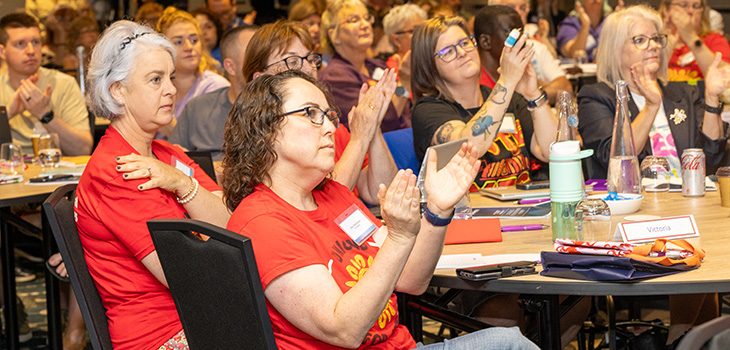The Australian Nursing and Midwifery Federation will be holding its Biennial National Conference (BNC) on the Gold Coast in October. What is the BNC, who attends and why is it important to nurses, midwives and care workers?
The ANMF is Australia’s largest union with over 345,000 nurses, midwives and care workers who are members of the union in one of eight Branches established in each state and territory.
While Branches respond to issues at a state and territory level and actively represent the industrial and professional interests of members at the local level, the ANMF Federal Office coordinates the activities of the Branches and advocates and responds to national issues of importance to nurses, midwives and care workers.
The ANMF Biennial National Conference (BNC) held every two years and attended by more than 140 delegates, is an important means by which ANMF members can make recommendations on any aspect of the professions to democratically influence the direction of the union.
“It’s an opportunity where workplace delegates get together nationally to discuss things of importance to them and to represent their state and territory Branches,” ANMF Federal Secretary Annie Buttler said.
“Many achievements of the union have resulted from resolutions that have come out of the Biennial National Conference – starting with a motion put forward by a delegate on the floor.”
Motions and Resolutions
The BNC welcomes delegates to collectively discuss and debate motions. A motion is a change or improvement in any aspect of workplace or the professions put forward by a member of the union on behalf of themselves, their colleagues and Branch.
Motions presented at the Biennial are usually related to national matters, but can be state based, particularly if a Branch is seeking national support on an issue.
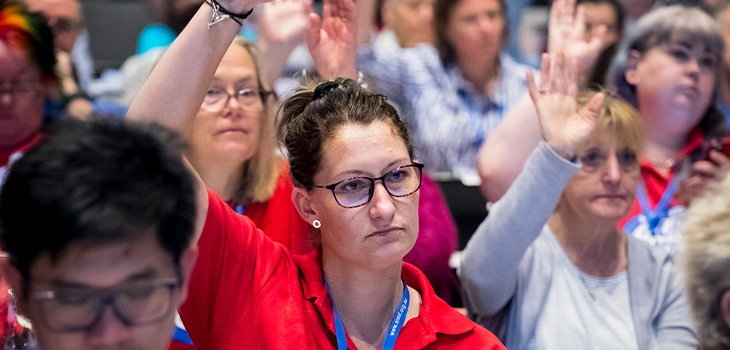
If an idea is accepted as a formal motion, it is debated by all the delegates at the conference. Motions that get majority support are passed and become resolutions. A resolution is an official statement of intent that guides ANMF’s direction in future years.
“The biennial national conference is more than the ANMF as a whole – uniting Branches on federal issues,” says ANMF President Sally-Anne Jones.
“It gives Branch officials who are the true rank and file nurses and midwives the chance to get together in their elected positions.”
History
During the 1960s the then RANF (Royal Australian Nursing Federation) held biennial conventions, but they were not a policy-setting forum with member representation like today.
The Federal Council passed a resolution at its 16-18 September 1991 meeting to add a new rule (Rule 27 A) to the ANF (Australian Nursing Federation) Federal Rule for a biennial delegates’ conference. Along with members of the Federal Executive, a designated number of elected job representative delegates representing each Branch of the Federation would attend.
Rule 27 A further specified that the ‘Biennial National Conference be a forum for consideration and debate on matters of national policy’.
The inaugural Biennial National Conference was held in Melbourne on 6-7 October 1993. Rule 27 A has been amended over the years to refine the process and remit of BNC.
Recent successful ANMF and union campaigns
In the past two years, the ANMF and union movement have won the biggest changes to workers’ rights and conditions seen in generations.
Many of the union’s biggest wins have come from resolutions put forward at BNC. Some in more recent times include:
- Commonwealth Prac Payment
- Superannuation paid during parental leave
- End of collaborative arrangements for nurse practitioners and endorsed midwives
- 10 days legislated domestic family violence leave
- Aged care mandated care minutes and minimum award wage increases
- Protecting penalty rates for nurses, midwives and AINs
The 2025 NBC will be held on the Gold Coast on 16-17 October.
Jack Shiner – Northern Territory
Jack Shiner is excited to be representing the ANMF NT Branch for the first time at the 2025 BNC.
“As the smallest branch nationally, the NT has unique challenges and perspectives, so I’m eager to connect and collaborate with colleagues from across Australia. It’s a valuable opportunity to exchange ideas, learn from others’ experiences, and bring forward issues that matter most to nurses and midwives in the Territory, ensuring our voice is heard on the national stage.”
Jack originally joined the union for the professional indemnity insurance that comes with membership, but the union has become much more important to him.
“Over time, as I became more involved, I’ve come to understand the significant role the ANMF plays in our profession, from industrial representation during EBA negotiations to day-to-day support from our Branch organisers. The ANMF is pivotal to the protection, support, and advancement of nurses and midwives.”
Jack will be moving a motion calling on the ANMF to advocate for increased federal funding and recruitment of lung cancer specialist nurses.
“Lung cancer is Australia’s leading cause of cancer-related death, yet there are only 12 specialist nurses nationally compared to over 400 breast cancer specialists. Increasing specialist nursing support would significantly improve patient outcomes and address this disparity.
“Additionally, I’m passionate about legislated nurse-to-patient ratios. With successful implementation in Victoria and Queensland improving patient safety and nurse wellbeing, I hope the NT branch can push for this important reform during upcoming EBA negotiations next year.”
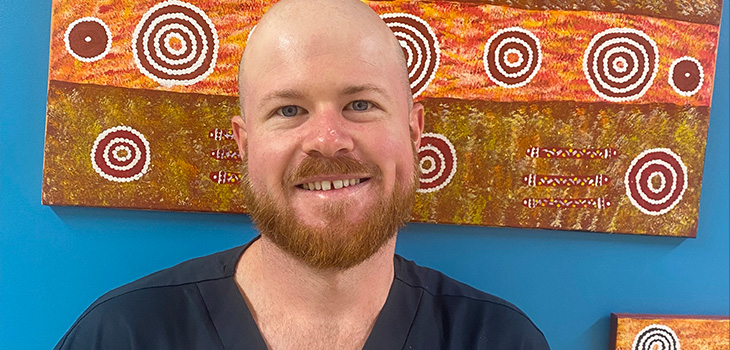
There are several key issues the NT nursing and midwifery workforce are facing that Jack is keen to hear discussed at BNC, including workforce shortages due to retention and staff turnover, particularly due to the transient nature of the NT workforce; and housing and infrastructure for remote area staff.
“Poor quality housing, safety concerns and limited access to stores and the internet are significant issues. Workplace violence particularly in our emergency departments and remote clinics has been a problem that needs to be addressed further.”
Jack says he’s proud of several recent ANMF achievements. “The scope of practice reforms removing collaborative arrangements have empowered advanced practice nurses and midwives to work more autonomously, improving access to care and professional satisfaction.
“Another major win is the introduction of the Commonwealth Prac Payment from 1 July, addressing placement poverty among student nurses and midwives. This financial support is crucial in ensuring students can complete their clinical placements without undue hardship, ultimately helping to attract and retain future healthcare professionals in Australia.”
Phil Ohman – ACT
An RN in the public hospital in the ACT, Phil has been a workplace delegate for about two years. He became an ANMF member whilst a mature aged student.
“My wife and daughter are both RNs and ANMF members, so I saw the benefits of the union from an early stage in my career.”
Phil is also a first timer to BNC and is looking forward to developing relationships with delegates from other states and territories.
“I’m hoping to discover what issues they are facing in their regions, and both support them in their endeavours and also be supported in issues we’re facing in the ACT.”
Phil considers one of the ANMF’s greatest achievements is the introduction of nurse-to-patient ratios.
“We’ve had ratios in our ED for a little under a year and it has made a tangible difference in the workplace. It has allowed for more time for patient interaction, less stress and pressure due to lower workloads, and fewer staff absenteeism.”
Phil is putting forward two resolutions at BNC, on workplace violence and people trafficking.
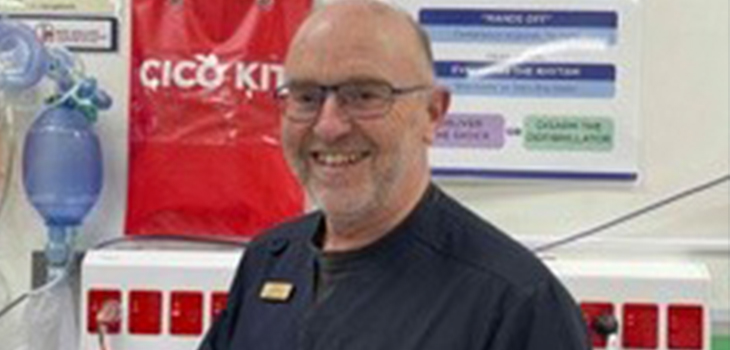
“I have lived and worked overseas and have seen the impacts of people trafficking. At the ANMF ACT Biennial Conference, I was a little surprised to discover that another delegate had worked with a colleague who had been trafficked. I’m passionate about social justice, which is why I’m presenting this resolution.”
Working in the ED, Phil witnesses workplace violence daily, and considers it should not be an acceptable part of being a nurse/midwife.
“There must be very few nurses that have not experienced some form of workplace violence, either physical or verbal. I would like to see not only legislation to protect nurses but legislation that delivers what it promises when sentencing transgressors, to make people think twice before abusing nurses and midwives.”
“Workplace violence needs addressing urgently; not just that received from patients but also horizontal and vertical violence. The culture of intimidation and bullying remains within the nursing/midwifery profession, and I believe this is a reason for young nurses in particular leaving.”
Phil would like to see action from the ANMF and buy-in from workplace delegates to encourage members to step up and bring the issue to light.
Lannelle Bailey – NSW
Working in regional aged care, Lannelle Bailey is excited to network with job reps across the country at BNC.
“I am excited, I think mainly because I work in the federal system, not state based and I’m looking most forward to connect with those in other states and territories who have the same issues and how we can move forward to get improved conditions and wages. We still have a long way to go.”
On the Albury/Wodonga border, Lannelle works in community care in Victoria and in RACF in NSW. She has been in the aged care sector for 12 years and joined the NSWNMA at the end of 2020.
Lannelle grew up on a dairy farm and worked in various industries including automotive, food, manufacturing, warehousing before she turned to aged care.
“I often feel worn out and downtrodden, but I am the most passionate about this [aged care] than I have been about anything else in my life.”
Aged care membership in the NSWNMA has grown by about 12% in the last 12 months, says Lannelle. Resolutions passed on aged care at the NSWNMA State Delegates’ Conference were unanimously passed because they are not unrealistic resolutions, she says. “Our colleagues support us because we are still fighting for the basic needs of our residents.”
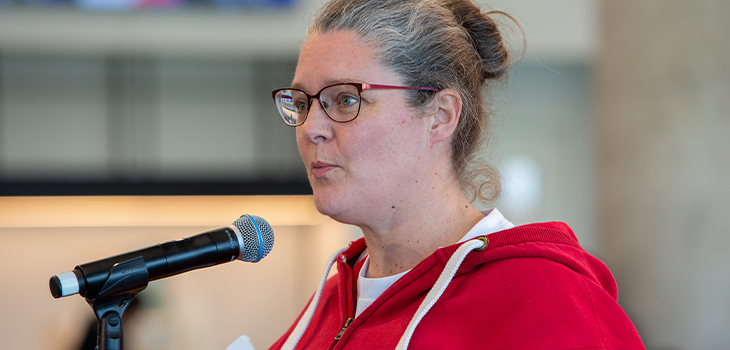
NSWNMA will be putting forward a multipoint resolution around aged care at BNC, including calling for a thorough investigation of the misuse of government funding by some private aged care providers.
“We want the best for our residents and for providers to be accountable for the funding they are provided with by government. Some employers are not compliant. If we do not meet care minutes, there are consequences for residents.
“There are not enough staff to do pad rounds on night shift which can result in skin excoriation of residents. That extra five minutes you can spend with a resident for them to feel heard, or you can have behaviours that will play out for the rest of the day. We also need to ensure there are mechanisms for reporting.”
Lannelle was with an ANMF delegation that travelled to Parliament House in Canberra in 2021 and was inspired listening to ANMF Federal Secretary Annie Butler talk to politicians about the issues in aged care.
“It’s exciting to be a cog in the wheel. It’s the sense of power that we have in numbers. We have some wins, and we have to keep the momentum and go forward, not backwards.”
Glenistair Hancock – Victoria
Glenistair Hancock has been a job rep for nine years. He was inspired to join the ANMF Victorian Branch as a new graduate working in a regional public hospital where there were no union workplace reps on his ward.
“I’m interested in the union both nationally and globally. It’s been a battleground with unions in how we can be progressive and relevant today. How we as unionists can have influence so that we can have good outcomes for society in general, for example for better outcomes in childcare and housing, and what practically on the ground that looks like for us.
“Our union, the ANMF is unique. I’m looking forward to seeing the whole process at the Biennial National Conference, how it works and what it achieves.
“My main focus is on giving a voice to rural nurses. Often unfortunately our health system is city centric. A lot of people leave rural locations to work in the city, compounding workforce shortages and difficulties in accessing healthcare. It’s one of my drivers along with mental health.”
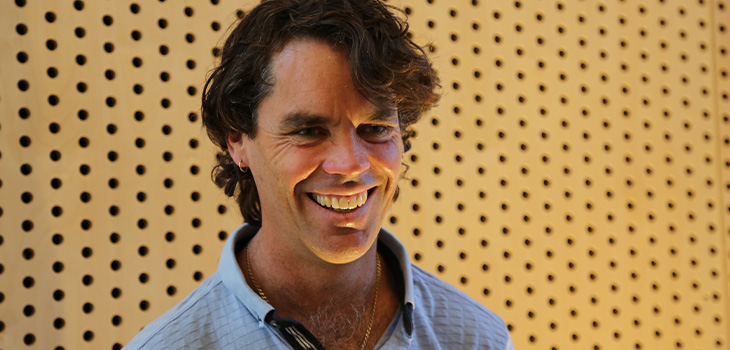
Mental health remains a challenging space, says Glenistair. “It is a lot more de-stigmatised but there’s still a fair bit of stigma. I’ve had the opportunity to be on the ANMF Victorian Branch working group for the Royal Commission into Victoria’s Mental Health System. It’s given me good insight into the process and the document.”
The Commission’s final report in 2021, included 65 recommendations aimed at transforming Victoria’s mental health system over the next decade.
Glenistair is looking forward to BNC and comparing with interstate colleagues on what’s happening in their jurisdictions. “I think we’re fairly progressive in Victoria and so I’m also looking forward to sharing what we’ve been doing.”
Kim Luby – Western Australia
Kim last attended BNC several years ago when she was the ANF Federal Vice President and enjoyed the camaraderie amongst delegates.
“Delegates are full of enthusiasm with discussions about how they motivate and advocate for nurses and midwives in their workplaces.”
“There’s robust debate on matters affecting the professions and, on the priorities the ANMF Federal Office should seek change around ie. Nursing Hours per Patient Day (NHpPD), access to university based professional education, remuneration for higher degrees and political lobbying on workplace issues such as 12-hour shifts.
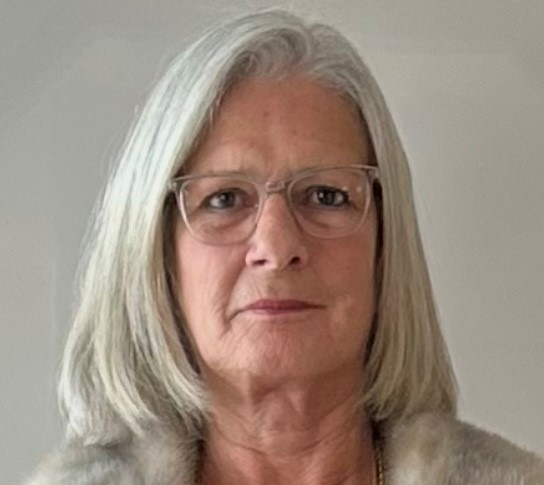
“Delegates share their experiences on dealing with common workplace issues and how they have achieved proactive local change and feedback on how their union has provided education for job representatives.”
Kim is passionate about workloads, workplace safety and bullying, education and the ongoing political lobbying of matters important to the membership.
Kim believes in order to optimise opportunities no matter the career pathway – registered nurse or midwife, enrolled nurse or carer is a wonderful, challenging, ever changing, but rewarding experience.”


